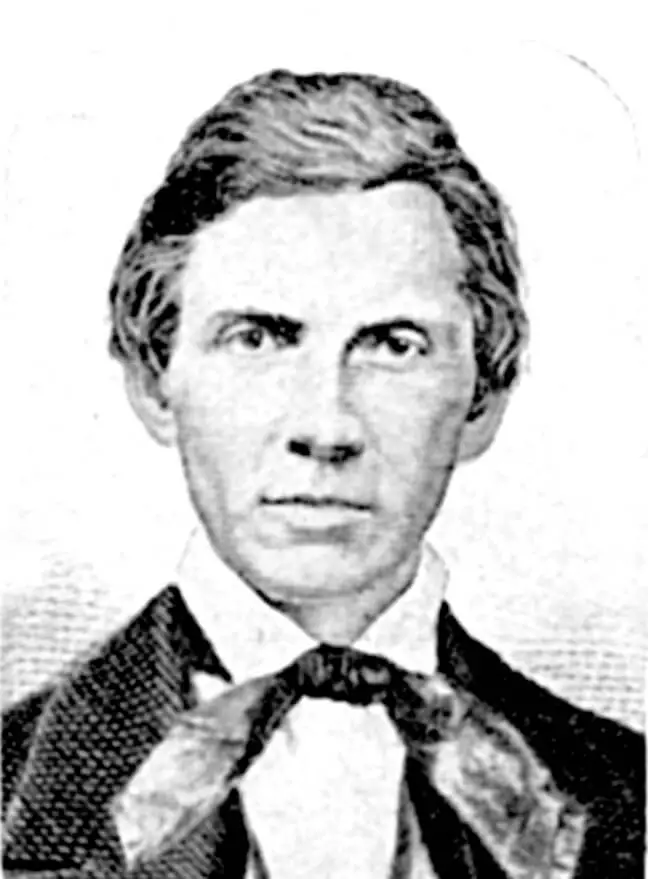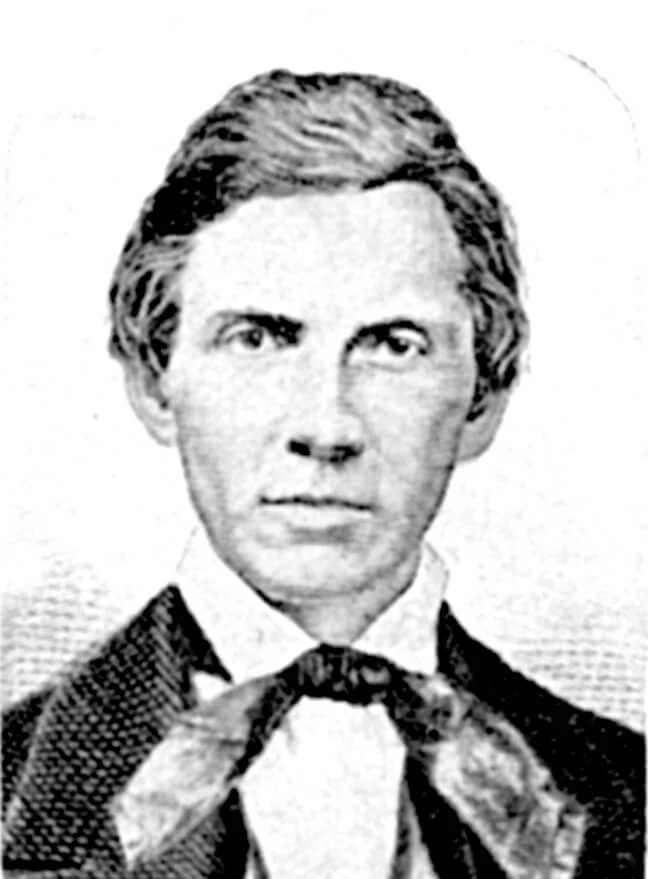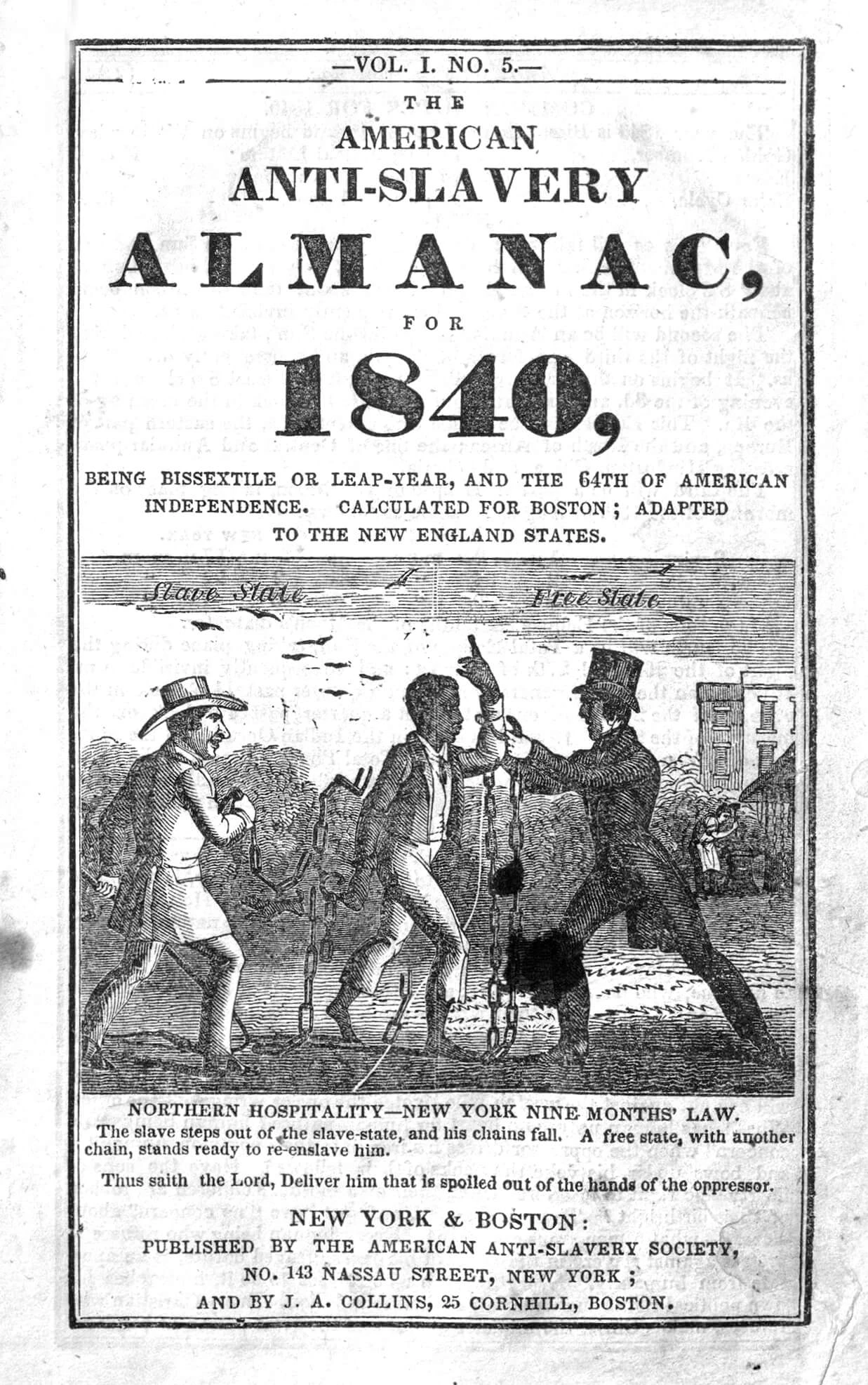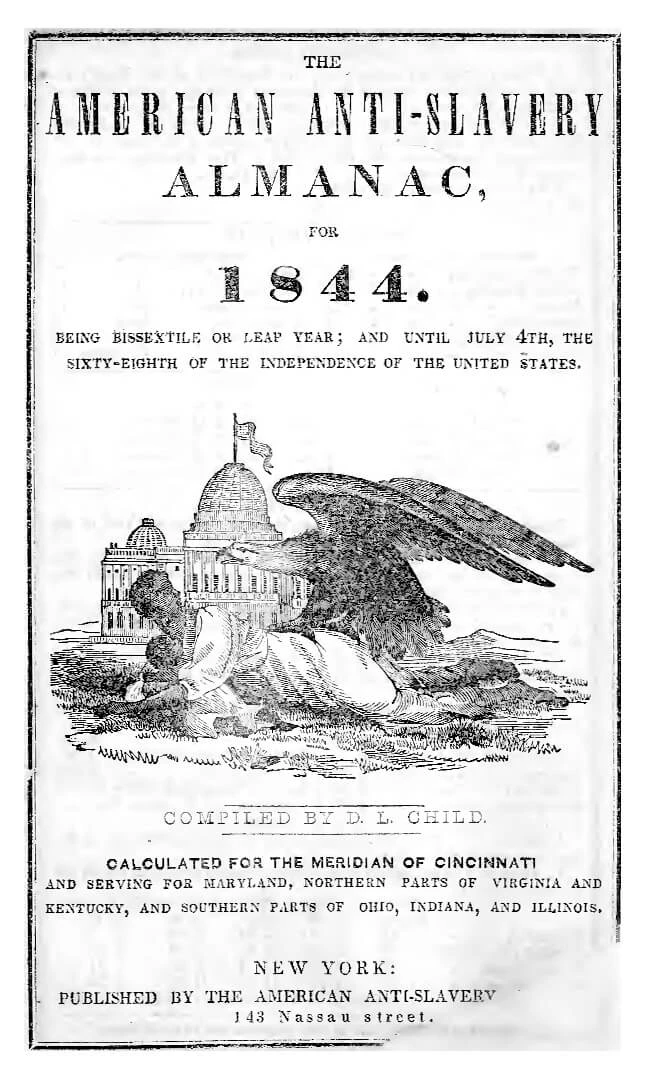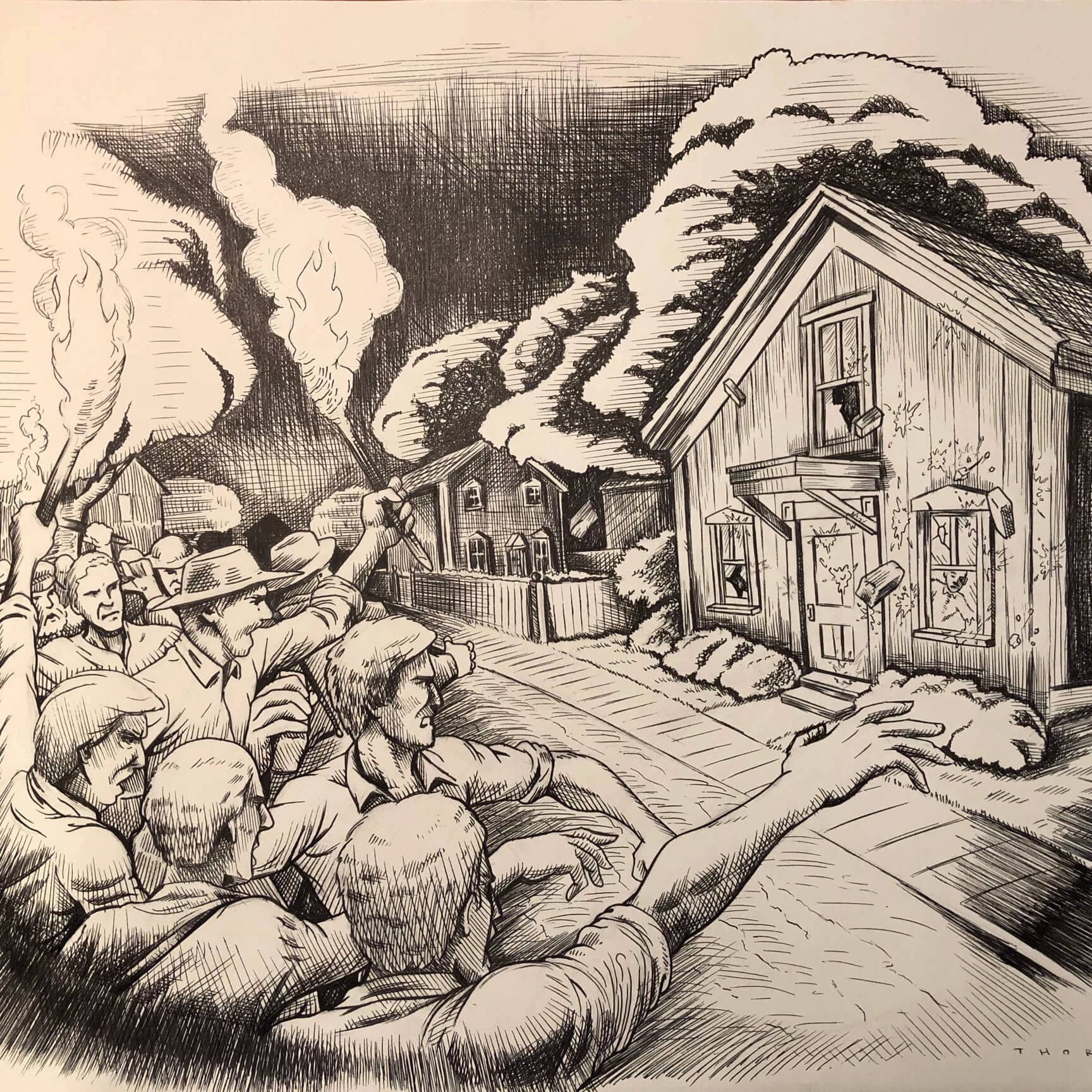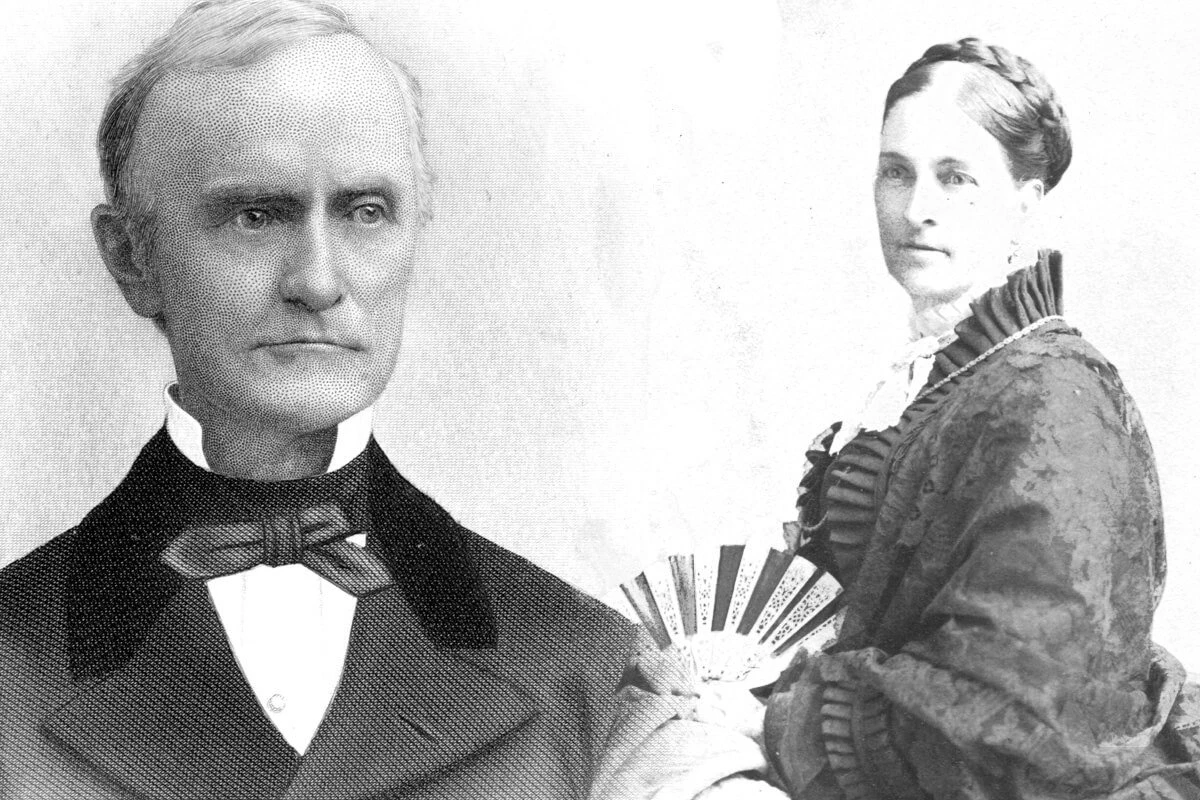1846
Who had the power to instill fear?Settlers from the South
A majority of McLean County’s earliest settlers were from the south and were often sympathetic toward slave owners.
Settlers from New England
The number of settlers arriving from New England states increased in the 1840s. Their views were often in stark contrast to those from the south, as most New Englanders opposed slavery.
Who had the power?
Reverend Levi Spencer
The Reverend Levi Spencer arrived in Bloomington from western Illinois in 1844, becoming the first pastor of Bloomington’s Congregational Church. Spencer advocated for an immediate end to slavery—a belief that defined his ministry. He soon formed Bloomington’s first anti-slavery society.
On May 30, 1846 Bloomington’s abolitionists gathered at the business of George Dietrich, a local tinsmith and fellow abolitionist.
They listened to a speech by Owen Lovejoy, brother of the martyred abolitionist Elijah Lovejoy. “Brother Lovejoy” spoke on “the great moral, political and religious question of the day” — of human rights and “duty to God and slave.”
So-called officers of the peace and a number of leading members of Bloomington’s churches soon gathered outside. But their intentions were not good. They proceeded to pelt the business with eggs in objection to the views expressed by those inside.
But this “base and disgraceful” harassment, which Spencer recorded in his diary, was only just beginning.
Asahel Gridley
Several weeks later, in early June, Spencer learned that local lawyer and businessman Asahel Gridley had offered a $100 reward to anyone who would tar, feather, and ride him out of town.
On June 12, 1846, a dozen or so 4th Illinois Volunteer Infantry members decided to target Spencer and a fellow local abolitionist, George Dietrich.
Spencer wrote in his diary...
“Threats still come to me from a leading member in the M.E. Ch. [Methodist Episcopal Church]. He is encouraging mob violence. We know not what to expect. Every noise late at night greatly disturbs my family. Lord protect us.”
Gridley Made Good on His Threats
On February 25, 1847, Gridley made good on his threats after learning that Spencer had visited his home and engaged his wife Mary and sister-in-law Juliet Covell in conversation and prayer.
Gridley tracked down and whipped the unarmed minister with a cowhide strap in broad daylight, getting in a good lick or two before Spencer retreated. The reverend turned the other cheek, and made no complaint against Gridley despite the public attack.
Reverend Spencer and his family left Bloomington in 1848. They settled in Peoria where he served the Congregational church until his death in 1853.
Reflection Questions
Who instilled fear in local abolitionists, and what gave them that power?
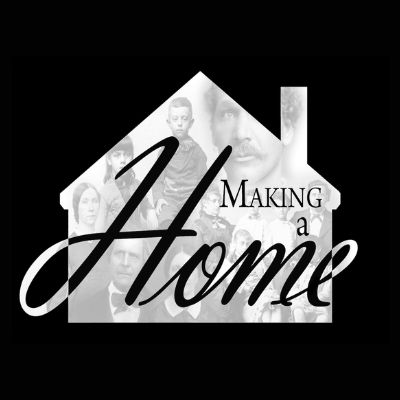 Making a Home
Making a Home
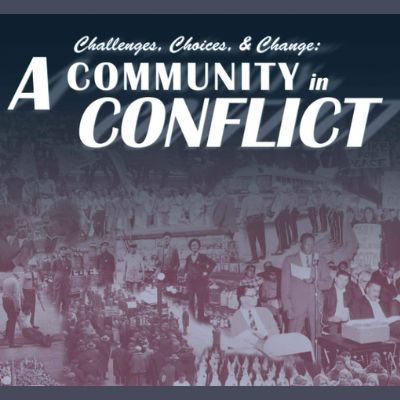 A Community in Conflict
A Community in Conflict
 Working for a Living
Working for a Living
 Farming in the Great Corn Belt
Farming in the Great Corn Belt
 Abraham Lincoln in McLean County
Abraham Lincoln in McLean County
